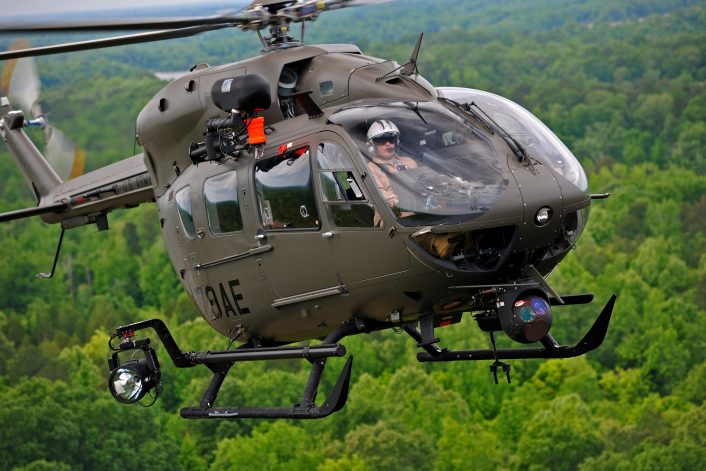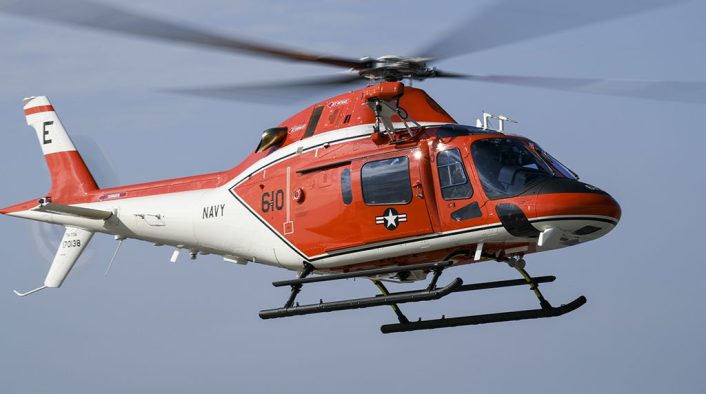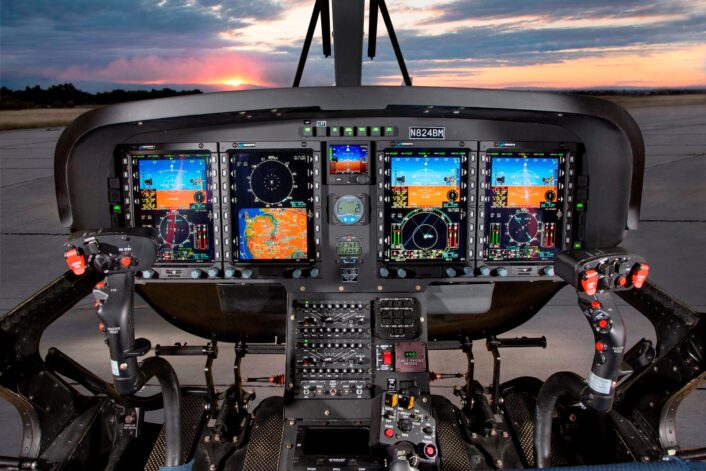Boeing and Leonardo will pursue collectively the U.S. Military’s Flight College Subsequent contractor-owned, contractor-operated (COCO) contract.
Boeing and Leonardo introduced a brand new partnership to collectively pursue the U.S. Military’s Flight College Subsequent contract, a serious program that may outline the way forward for the Military’s rotary-wing pilot coaching. The collaboration, introduced on Oct. 13, 2025, throughout the Affiliation of the U.S. Military (AUSA) Annual Assembly in Washington, brings collectively Boeing’s deep expertise in Military aviation companies with Leonardo’s field-proven AW119T coaching helicopter.
In accordance with each corporations’ press releases, the partnership will supply a contractor-owned, contractor-operated (COCO) resolution designed to ship an environment friendly, scalable and high-readiness coaching system for brand spanking new Military aviators. Boeing will present methods integration, simulation, and program administration experience, whereas Leonardo contributes its mature AW119T platform, already in service because the U.S. Navy’s TH-73A Thrasher coach.
“We’re bringing collectively two trade leaders to supply the Military a turnkey, modern method to rotary-wing coaching with an built-in, long-term resolution that will increase aviator proficiency, operational and sustainment efficiencies and delivers measurable worth all through the lifetime of this system,” mentioned John Chicoli, Senior Director for U.S. Military, Marines & Particular Operations/Missions at Boeing World Companies.
A Confirmed Coaching Platform
Leonardo’s AW119T serves because the core of the proposed coaching system. The plane’s design consists of crashworthy gasoline methods and seating, and it helps full landing autorotations and in-flight emergency coaching, that are key necessities for navy helicopter pilot coaching.

The only-engine helicopter has gathered greater than 100,000 flight hours, together with over 16,000 hours beneath instrument flight guidelines (IFR) and 40,000 landing autorotations, say each corporations, demonstrating its suitability for superior flight instruction.
Leonardo already sustains a fleet of 130 AW119T plane, designated as TH-73 Thrasher, operated by the U.S. Navy close to Fort Rucker, Alabama, the place the Military’s coaching helicopters are based mostly. Ought to the service select the AW119T, this may permit for instant logistical synergies and quicker responsiveness, exploiting the work accomplished with the Navy.
“The AW119T is a confirmed platform that already helps U.S. navy coaching day by day. With greater than 100,000 flight hours gathered and a sustainment community in place in Florida, Leonardo and Boeing are uniquely positioned to ship instant functionality and long-term worth to the Military by means of Flight College Subsequent,” mentioned Clyde Woltman, CEO of Leonardo Helicopters U.S.
Turnkey, Scalable Coaching Method
The joint proposal emphasizes a complete “turnkey” coaching package deal, together with airframes, simulators, upkeep, spare components, validated coaching curricula, and certified instructors. In accordance with the businesses, this system might be structured round a proficiency-based, phase-driven mannequin that blends in-aircraft coaching with superior simulation and digital teacher pilot applied sciences.


Moreover, cloud-based progress monitoring would allow adaptive coaching tailor-made to every pupil’s tempo. This and the brand new coaching program will permit to maximise flight hours and enhance the coaching output.
The partnership additionally highlights operational efficiencies by means of automated logistics, optimized upkeep scheduling, and adaptive coaching calendars to mitigate climate and daylight impacts. Boeing and Leonardo say these efficiencies will maximize plane utilization and maintain readiness all through the lifetime of the contract.
Leveraging Complementary Strengths
Each corporations convey distinct but complementary expertise to the desk. Boeing World Companies supplies worldwide coaching and mission system help for the AH-64 Apache fleet, together with stay, digital, and constructive simulation, cockpit process trainers, and teacher growth applications. Leonardo, in the meantime, has intensive manufacturing and sustainment infrastructure for the AW119T and its variants within the U.S., together with a totally operational help facility and manufacturing capability to satisfy future Military demand.
It might even be not the primary time the 2 corporations work collectively, as the 2 have already got “a tried and trusted relationship” by means of previous protection collaborations, such because the U.S. Air Drive MH-139 Gray Wolf program. Boeing’s Turbo Sjogren, Vice President and Common Supervisor of Authorities Companies, famous in feedback reported by Aviation Week: “Our companies enterprise brings scale and leverage that we will definitely convey to bear.”


Leonardo’s Andrew Gappy, Vice President for U.S. Authorities Applications, additional informed Aviation Week that Boeing’s entry into the group was pushed by the service nature of the upcoming contract: “We’re not a confirmed service supplier like Boeing World Companies is … We all know we’ve got the fitting plane and coaching resolution, however we wanted somebody with a confirmed report with the Military.”
A part of a Broader Modernization Effort
The Flight College Subsequent competitors represents a serious transformation in how the U.S. Military trains its rotary-wing aviators. At the moment, the Military depends on the twin-engine UH-72A Lakota for major coaching, which changed the older OH-58 Kiowa, however the service is in search of a less expensive and sensible single-engine alternative to higher develop pilots’ elementary flying abilities.
As Protection Information reported, inside Military research, carried out with the Boston Consulting Group and the School of William & Mary, decided that transitioning to a single-engine platform and a COCO mannequin might save “a whole bunch of hundreds of thousands of {dollars}” whereas bettering coaching outcomes. The Military plans to problem a closing request for proposals in 2026, with implementation anticipated in fiscal yr 2027.





